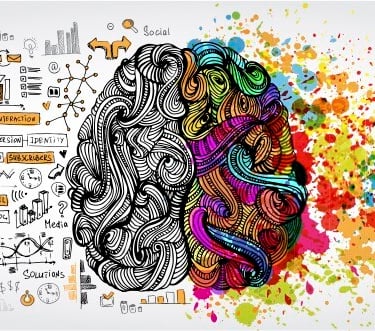The human mind: Work in progress
The quality of our mind, determines the quality of our life's. Learn about the evolution of the mind. And the next step we need to take to elevate our game.
7/11/20243 min lesen


The Human Mind - Work in Progress
Only one generation ago, our grandparents didn't know what the internet was or what a smartphone could do. They shared the planet with "just" 2 billion other humans, unable to imagine that within their lifetime, this number would triple, with people living in megacities of 35+ million inhabitants. The world has changed dramatically in the last 50 years, at an unprecedented pace. While humans have existed for roughly 200,000 years—a blink of an eye in the planet's history—we've undergone a tremendous evolutionary journey. The success we see today, with 8 billion humans living longer, healthier, and wealthier lives, is largely due to the development of one tiny yet powerful thing: our mind.
The ability to think about our thinking is an evolutionary wonder unique to humans. However, this hasn't always been the case. Our mental developmental journey has passed through several stages, each marked by a distinct phase of evolution. Scholars such as Ken Wilber, Jean Paget, and Clare Graves have extensively studied these stages, revealing how our ways of thinking, beliefs, and behaviors have evolved over time. Here are the main stages:
Level 1: Infrared Mind
This earliest stage lasted until about 50,000 years ago. Humans lived in small family bands with a limited mind capacity for complexity and relationships. There was no concept of the self able to distinguish ourselves from others or the environment. Leadership and division of labor were non-existent.
Level 2: Magenta Mind
Around 15,000 years ago, the first cognitive thought patterns emerged, though cause and effect were poorly understood. Ritualistic behaviors provided a sense of control, with elders holding special status. People lived mostly in the present, with limited understanding of the past or future.
Level 3: Red Mind
Approximately 10,000 years ago, humans developed a full sense of self. The world became a dangerous place where strength was essential for meeting needs. Emotions were shallow and often expressed through violence. Simple causal relationships were understood, leading to the first forms of organization based on power and fear.
Level 4: Blue Mind
The age of empires began around 6,000 years ago. Humans developed a good grasp of cause and effect and an understanding of time, allowing for agriculture and long-term planning. Social structures based on group norms emerged, with self-worth tied to the opinions of others. Institutions like the church and military provided stability and control.
Level 5: Orange Mind
Modern times brought the age of capitalism, marked by a scientific understanding of the world. Effectiveness replaced morals, and innovation led to unprecedented prosperity. However, this mindset also introduced corporate greed, political corruption, social inequality, and environmental exploitation.
Level 6: Green Mind
The Green mindset emerged as a response to Orange's materialism. It values equality, harmony, and peace, emphasizing human rights and fairness. While the green mind advocates for idealism and empowerment, it often struggles with decision-making and leadership, leading to weak compromises and frustration.
The Challenges of the Modern Age
It's important to note that these stages are simplifications of reality. People often exhibit a mix of these stages, and no stage is inherently better than another. As Nick Petrie notes, "There is nothing inherently better about being at a higher level of development, just as an adolescent is not 'better' than a toddler". Each level of development suits different tasks and challenges.
At the same time, modern times have brought changes at unprecedented speed that our mind has not adapted to yet. Stress, anxiety, and antidepressant use are at an all time high. Our mind is overloaded. To overcome the challenges of the modern age and to live happy and effectively, we must actively continue to evolve our minds. By practicing the right things, we can better navigate the complexities of the new world, make more informed decisions, and foster healthier relationships.
Understanding and evolving our minds will be crucial for personal growth, societal progress, and well-being. By becoming aware of our mental processes, we can liberate ourselves from dysfunctional habits and make conscious choices about how we want to live, parent, and lead. The journey of the human mind is a testament of our incredible potential.
Sources
Wilber, K. (2001). A theory of everything: An integral vision for business, politics, science and spirituality. Shambhala publications.
Piaget, J., & Inhelder, B. (2008). The psychology of the child. Basic books.
Graves, C. W. (1974). Human nature prepares for a momentous leap. The futurist, 8(2), 72-87.
Petrie, N. (2011). Future trends in leadership development. Center for Creative Leadership white paper, 5(5), 36.
© 2025. All rights reserved.
Büro im Herzen von Zürich
Kontaktformular
Therapy Central
Limmatquai 138, 8001 Zurich
